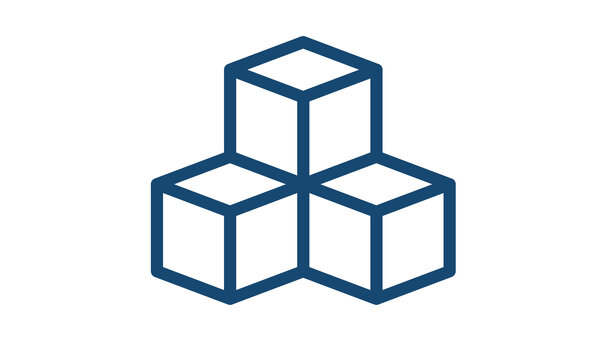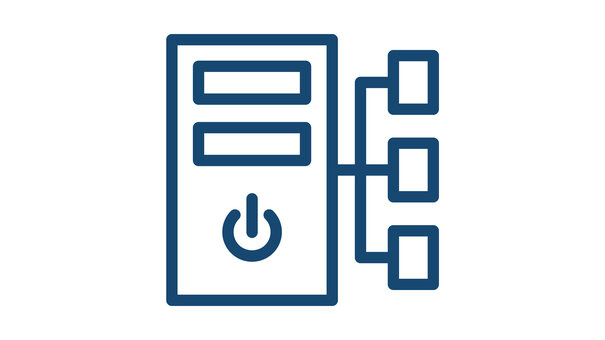Main research areas
Mathematical Foundations
Since its beginnings, modern cryptography has been one of the main fields of applications of abstract mathematics and specifically number theory. At first, the mathematical problems underlying cryptographic protocols have been basic questions about congruences. Since the start of the post-quantum era, where many classical protocols cannot be considered secure in a long-term view, new foundational problems have arisen that build up the basics for constructions in cryptography. These new problems are again inherently mathematical, though, much more elaborate than the classical ones. In our research on mathematical foundations of cryptography we analyze the fundamental problems of modern cryptography in various aspects, such as the hardness of the computational problems. On the other hand, the construction of advanced primitives in cryptography requires new mathematical tools, which we develop as part of our research on mathematical foundations of cryptography.
Our most recent publications in the area of Mathematical Foundations are:
- Cryptographic Smooth Neighbours
Giacomo Bruno, Maria Corte-Real Santos, Craig Costello, Jonathan Komada Eriksen, Michael Meyer, Michael Naehrig, Bruno Sterner
Asiacrypt 2023 - Application of Automorphic Forms to Lattice Problems
Samed Düzlü and Juliane Krämer
JMC 2022 - Sieving for twin smooth integers with solutions to the Prouhet-Tarry-Escott problem
Craig Costello, Michael Meyer, and Michael Naehrig
EUROCRYPT 2021
Physical Security
If the implementation of a cryptographic algorithm is not secured against physical attacks, information about the private key could be derived from this vulnerability. For this purpose, an adversary could use physical measurements (side-channel attack) or the targeted introduction of errors (fault attack) during the computation. In this research area, we investigate attacks on signature and encryption schemes that could be carried out by such a powerful attacker, and suggest countermeasures to make these schemes more resilient. We focus not only on the theoretical attacker model and error tracking, but also on the practical relevance of the respective scenario.
Our five most recent publications in the area of Physical Security are:
- SoK: On the Physical Security of UOV-based Signature Schemes
Thomas Aulbach, Fabio Campos, Juliane Krämer
PQCrypto 2025 - HaMAYO: A Fault-Tolerant Reconfigurable Hardware Implementation of the MAYO Signature Scheme
Oussama Sayari, Soundes Marzougui, Thomas Aulbach, Juliane Krämer, and Jean-Pierre Seifert
COSADE 2024 - Separating Oil and Vinegar with a Single Trace
Thomas Aulbach, Fabio Campos, Juliane Krämer, Simona Samardjiska, Marc Stöttinger
CHES 2023 - On the Feasibility of Single-Trace Attacks on the Gaussian Sampler using a CDT
Soundes Marzougui, Ievgen Kabin, Juliane Krämer, Thomas Aulbach, Jean-Pierre Seifert
COSADE 2023 - Disorientation Faults in CSIDH
Gustavo Banegas, Juliane Krämer, Tanja Lange, Michael Meyer, Lorenz Panny, Krijn Reijnders, Jana Sotáková, and Monika Trimoska
Eurocrypt 2023
Design and Application of PQC Schemes
This research topic aims at advances in the practical usability of post-quantum schemes. In particular, we design PQC schemes and build advanced protocols, such as threshold protocols or identity-based encryption, from PQC schemes. Furthermore, we work on mathematical optimizations of PQC schemes, which allow for more efficient implementations. This also includes considerations for real-world applications, such as constant-time implementations, or implementations for specific use cases.
Our five most recent publications in the area of Design and Application of PQC Schemes are:
- Exclusive Ownership of Fiat-Shamir Signatures: ML-DSA, SQIsign, LESS, and More
Michael Meyer, Patrick Struck, and Maximiliane Weishäupl
Crypto 2025 - Hash your Keys before Signing: BUFF Security of the Additional NIST PQC Signatures
Thomas Aulbach, Samed Düzlü, Michael Meyer, Patrick Struck, and Maximiliane Weishäupl
PQCrypto 2024 - Practical Key Recovery Attack on MQ-Sign
Thomas Aulbach, Simona Samardjiska, and Monika Trimoska
PQCrypto 2024 - Efficient Post-Quantum Secure Deterministic Threshold Wallets from Isogenies
Poulami Das, Andreas Erwig, Michael Meyer, and Patrick Struck
ACM AsiaCCS 2024 - Optimisations and Practicality of High-Security CSIDH
Fabio Campos, Jorge Chavez-Saab, Jesús-Javier Chi-Domínguez, Michael Meyer, Krijn Reijnders, Francisco Rodríguez-Henríquez, Peter Schwabe, and Thom Wiggers
IACR Communications in Cryptology, 1(1), 2024 - AprèsSQI: Extra Fast Verification for SQIsign Using Extension-Field Signing
Maria Corte-Real Santos, Jonathan Komada Eriksen, Michael Meyer, and Krijn Reijnders
Eurocrypt 2024
(Post-)Quantum Security
This research area deals with the security of cryptographic primitives against attackers with quantum computing power. On the one hand, we consider what is commonly referred to as post-quantum security: attackers have quantum computing power while end users of cryptographic primitives have classical computing power. This captures the scenario once the first large-scale quantum computers exist. On the other hand, we consider what is known as quantum security. In this scenario quantum computers are ubiquitously deployed. This scenario enables new attack vectors as an attacker can get quantum access to cryptographic devices.
Our most recent publications in the field of (Post-)Quantum Security are:
- Field-Tested Authentication for Quantum Key Distribution and DoS Attacks
Antoine Gansel, Juliane Krämer, Tim Schumacher, Patrick Struck, Maximilian Tippmann, and Thomas Walter
QSHC 2025 - On Quantum Ciphertext Indistinguishability, Recoverability, and OAEP
Juliane Krämer and Patrick Struck
PQCrypto 2022 - Sponge-based Authenticated Encryption: Security against Quantum Attackers
Christian Janson and Patrick Struck
PQCrypto 2022 - Quantum Indistinguishability for Public Key Encryption
Tommaso Gagliardoni, Juliane Krämer, and Patrick Struck
PQCrypto 2021 - Encryption Schemes Using Random Oracles: From Classical to Post-Quantum Security
Juliane Krämer and Patrick Struck
PQCrypto 2020





